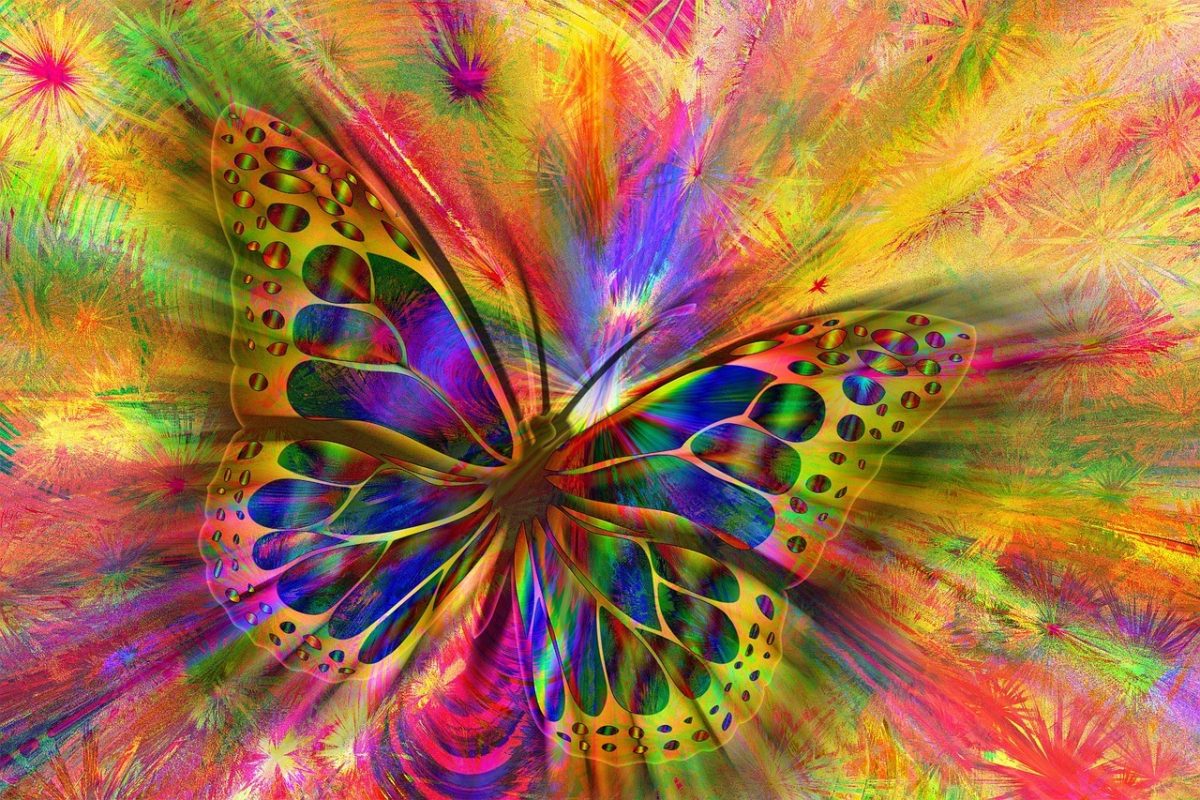
I remember the feeling of being buffeted and battered by the wind, of having to put my head and shoulders down and battle my way through that gale that pushed me back and up and off at every step.
I always felt that that cyclone was a good analogy for my life.
I wasn’t identified as Autistic until I was an adult. But in my analogy, I always thought that my Autism (or before my identification as Autistic, my difference, my social clumsiness, my awkward manner, my anxiety) was my cyclone, the force I was battling against, that made my life difficult and grueling and tumultuous and blew me off course.
I was wrong.
Now, looking back, I know that Autism wasn’t my cyclone at all. No. Actually, the cyclone was the isolation, and the loneliness, and the peers who couldn’t see past the difference to see me. The cyclone was the world that wasn’t – isn’t – geared to accept me as I am. Those are things that really pummeled and battered me, and kept me anxious and alone.
When I was in high school, when I felt the brunt of my peers’ prejudice, my Autism gifted me a special friend in the form of my Maths teacher, who shared my passion for King John and his two Isabella wives. My teacher and I debated this much maligned King for many contented hours. Now, I imagine most 14 year-old girls would feel a certain peer pressure to eschew befriending an adult (especially their Maths teacher), but my Autism cared little for ageism or social expectation: it craved connectedness, shared interests, and quality conversation. That is the freedom of my Autism.
For most of my teenage years, I read between 10 and 20 novels weekly. My parents would take me to the local library every Saturday morning, and I would return my books from the previous week and borrow another pile that I would read into the wee hours of every morning. I loved – still love – books. With each book I read, I made new friends, and the characters would give me the companionship and acceptance I so desired. I suppose that might sound sad, but books allowed me to travel to the most wonderful, remote and fantastic places; I have travelled through time and space and I still count my fictional friends as some of my closest. My Autism gave me the capacity to imagine with an intensity and vividness that meant I could expand my reality beyond the mundane. That is the extraordinary capacity of my Autism.
For all of my life I have adored movement. I was fortunate enough to see Sylvie Guillem and Rudolf Nureyev dance in Giselle when I was a young girl, and I will never forget the visceral joy it gave me to see the complex grace of their motions, their symbiotic bond to the music. I felt their dancing within myself, with far more complexity and totality than simply watching implies. And now when I hear music – whether it’s Prokofiev’s Romeo and Juliet or Simon and Garfunkel or Wolfmother – I experience the melody and the emotion in my whole body. It is a delight that is difficult to describe, but each sinew, each ligament, muscle, and organ vibrates with the satisfaction of immersion. I experience an elation, an exultation, an ecstasy that is so much more than simply listening to music. That is the joy of my Autism.
I experience the world in technicolour. I notice each detail. Every smell. Each petal unfolding, each cloud forming, the subtlety of colour, the nuance of seasons. I see the texture, I smell the emotion. I don’t need to remind myself to stop and smell the roses, because my brain is so attuned not just to their perfume, but to admire the velvety beauty of their petals, the delicate thinning of the petals, the magnificent patterning, the blending of colour that defies description. Every time. Sometimes that intensity is overwhelming and challenging, but it is also wonderful. That is the beauty of my Autism.
I think my Autism is beautiful.
So often in this world, we judge people on their contributions – what they can offer, what skills they can supply to society – and we equate value with the promise of what can be given, what might be done. Often Autistics are maligned because our contributions are not conventional. When we are lauded it is often because we have some splinter skill that is desirable and has social currency. But I don’t judge myself – or my Autism – by such limited standards. My Autism isn’t valuable or beautiful because it will mean I contribute to society, conventionally or otherwise. It is not beautiful because I have savant skills that make me extraordinary. I am certainly not the next Albert Einstein or Daryl Hannah or Stephen Wiltshire. It is beautiful because it is. Just that simply. Because, for me, my Autism is my rainbow, my sunshine, suffusing me with colour and showing me the beauty in the world. It is a celebration.
And so, on June 18th, I think it only fitting to celebrate my Autism. Because it deserves it. Happy Autistic Pride Day.

The Reframing Autism team would like to acknowledge the Traditional Owners of the lands on which we have the privilege to learn, work, and grow. Whilst we gather on many different parts of this Country, the RA team walk on the land of the Amangu, Awabakal, Bindjareb, Birpai, Whadjak, Wiradjuri and Yugambeh peoples.
We are committed to honouring the rich culture of the Aboriginal and Torres Strait Islander peoples of this Country, and the diversity and learning opportunities with which they provide us. We extend our gratitude and respect to all Aboriginal and Torres Strait Islander peoples, and to all Elders past and present, for their wisdom, their resilience, and for helping this Country to heal.